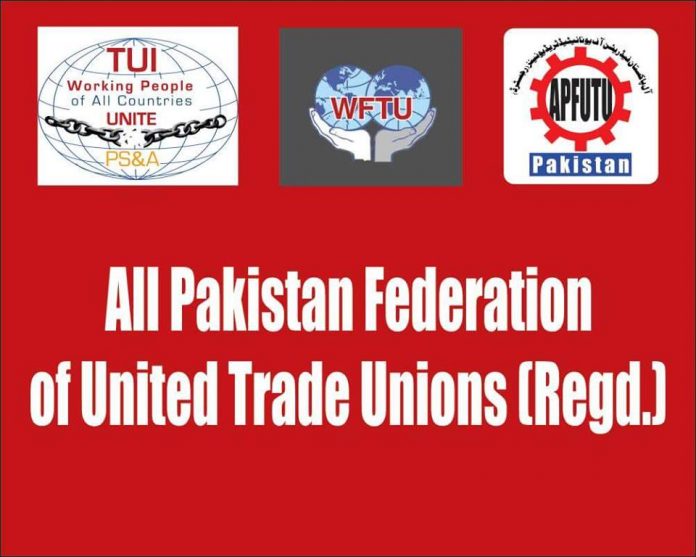“Precarious work and its negative effects on Workers”
By: Mehrunissa Ayub, Joint Secretary (Women Wing), All Pakistan Federation of United Trade Unions (APFUTU)
Unemployment, inflation, expensive education and a saturated labour market, all are common issues we are facing these days. People need jobs not just for self-satisfaction but also for the fulfilment of their families’ primary needs. Pakistan has a saturated labour market because everyone needs talented and highly educated workers, but no one promotes skills and devotion. Thus, companies and organisations are not ready to hire skilled and devoted people because they want to find the most talented people with the lowest possible pay package. People start working with low salaries because they need to be able to make ends meet, so they prefer to work overtime or at different places in one day.
Precarious work is non-standard employment that is not paid enough in an insecure, unhealthy environment, with the worker not being able to support his/her household. In recent decades, the rate of precarious work has increased because of globalisation, private organisations and an increase in the need of information technology. All these factors signify high economic demands in the workplace and cause decline in the employment standard. Precarious work is not enough to support a household, as it is associated with different types of employment such as part-time jobs, temporary work, on-call work, home-based workers, seasonal works and multiple jobs at the same time. In our society, a single person might need to support 10 other family members; so this person might prefer precarious work instead of unemployment which definitely has negative effects on his physical health, psychological growth and self-esteem as well.
Organizations that follow precarious work policies are also destroying unions and cut labour costs. Precarious work is increased when permanent, regular jobs are not enough and are replaced by subcontracted labour and temporary, short-term jobs. Workers struggle to bring back permanent job policies. Many organizations offer temporary jobs and workers are wrongly classified as independent contractors. These workers are facing job instability, low wages and more dangerous working conditions which go against the rights and benefits of regular workers. Precarious workers do not receive healthcare or retirement benefits and it is forbidden to join trade unions. Contractors just swallow the high percentage of wages of temporary workers and do not give them full pay for eight hours which is illegal. Labours have the right to unionise but do not do so because they are afraid of of being fired from jobs which are not permanent.
Organisations that have precarious-based work policies offer permanent job needs but do not fill the criteria of permanent employee rights and requirements. These organisations demand high quality work but do not provide a proportionally equal amount of wages, which is totally against the right of an employee.
Precarious works is not only linked with non-standard employment but also with dangerous working conditions which can affect the physical and mental health of an employee and even cause serious harm. Workers are always facing high risk of injury. Workers can develop workplace-related stress issues leading to depression but still continue to struggle for the basic needs of life.
Furthermore, precarious works affects the personal relationship and emotional attachments because when needs are not fulfilled, everyone gets stressed out. Some people do not even get married because they are not ready to face another burden in life which can cause emotional imbalances and lead to aggressive traits.
People who hold precarious jobs are not ready to leave them at any cost because it is very hard to find a job. So, they cannot get educated because those skills are not appreciated in the workplace. In some cases, just because job wages are not enough, people cannot meet their educational goals due to how expensive getting an education is.
Finally, the debate ends with the conclusion that now is the time to counterbalance the policies put forward by the organisations, which go against the directives of International Labour Organization (ILO). The ILO also has to revise the terms and policies of precarious work to control unemployment.



